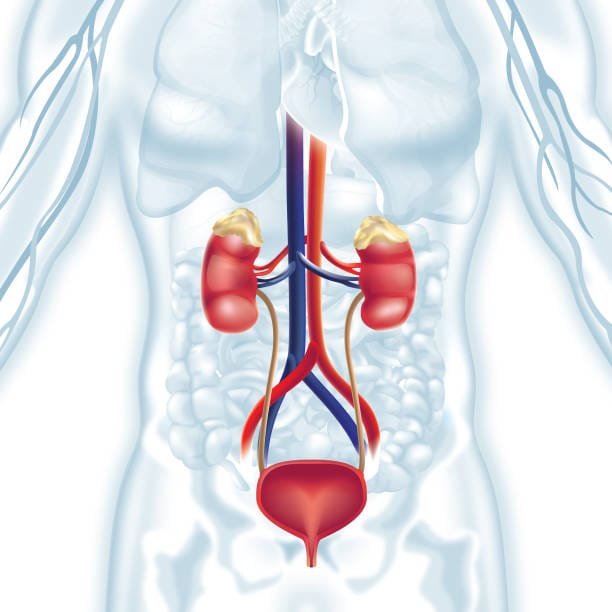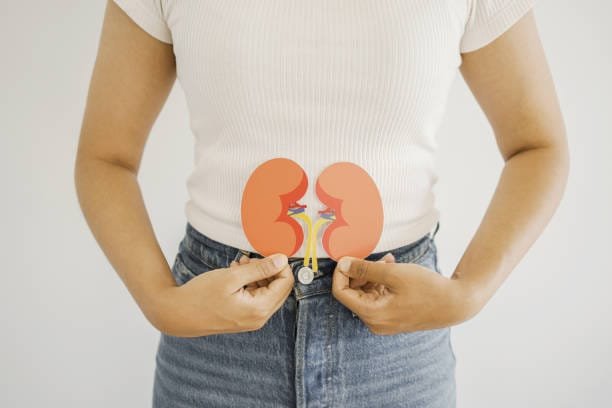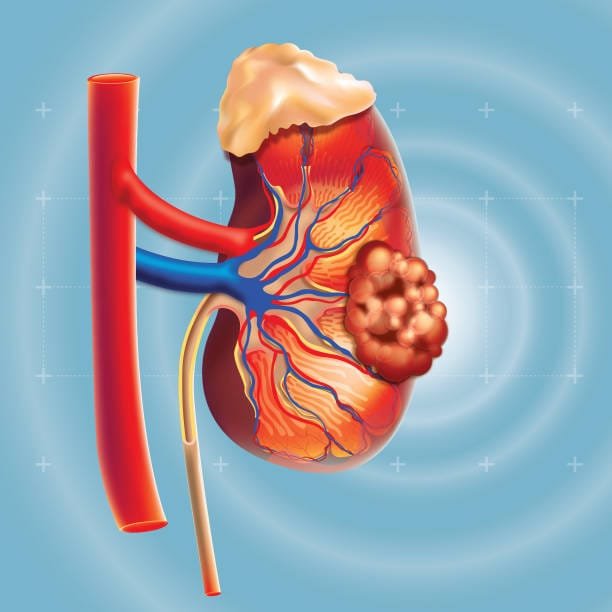Introduction

The two best kidneys in the human body filter the blood of the waste products that might flow through the bloodstream and excess fluids. They also regulate blood pressure, balance electrolytes, and perform hormone production. When the infection gets into the kidneys or there is damage to these organs, some serious health issues can result. Kidney diseases, infections, and failures form among the worst conditions infecting millions of people all over the world. Here we will go through how kidney disease and infections may cause failure, their symptoms and consequences, and how such conditions can be prevented or managed.
Understanding Kidney Disease
Kidney disease, also known as CKD or chronic kidney disease, refers to the progressive loss of kidney function. It generally is an asymptomatic condition, but not always silent, making it difficult to identify during the early stages. When kidney function declines further, waste and excess fluids accumulate in the body and cause increasingly dangerous complications eventually.
Ultimately, chronic kidney disease can lead to kidney failure, which is the final stage of kidney disease. The kidneys lose their ability to filter the blood properly. At this point, a person will be dependent on dialysis or even a kidney transplant in order to survive.
Causes of Kidney Disease
Kidney disease can be attributed to a variety of causes. Some of the most common causes include:
High blood sugars for long periods damage the smaller blood vessels in the kidneys, which then hampers the cleaning process. Diabetes has become one of the biggest causes of kidney disease and accounts for so many cases of CKD.
High Blood Pressure: Hypertension is a condition of the long-term rise in blood pressure, causing damage to the smaller blood vessels of the kidneys and reducing the ability of the kidneys. High blood pressure is asymptomatic, so seek regular check-ups.
Glomerulonephritis: Glomerulonephritis is the inflammation of the filtering units of the kidney. They are named glomeruli. The causes include infections, autoimmune diseases, and genetic factors. If left untreated, this causes major damage to the kidneys.
Polycystic Kidney Disease (PKD): PKD is a genetic disorder attributed to fluid-filled cysts that arise in the kidney. These cysts eventually swell up with time, and the kidneys become dysfunctional and eventually may lead to the failure of kidneys.
Kidney Stones: Recurrent kidney stones rarely cause kidney disease per se but indirectly do so by causing obstructive complications and infections in the urinary tract.
Urinary Tract Obstruction: Diseases like an enlarged prostate or kidney stone may completely block the urine flow, causing chronic damage to the kidneys. The obstruction increases the pressure inside the kidneys, which more often than not impairs their functions.
Infections and toxic exposure: Exposure to certain infections or prolonged use of toxic substances, such as NSAIDs or alcohol, may lead to damage to the kidneys.
Kidney infections: causes and symptoms

Kidney infections are usually caused by the proliferation of bacteria that finds its way into the kidneys from the urinary tract. The most common precursors of a kidney infection include a UTI that is not treated adequately or even in a timely fashion. In the case of a UTI, bacteria ascend the urinary tract to the kidneys themselves when treatment is inadequate and/or insufficiently prompt.
Causes of Kidney Infection
The most common cause of renal infection is bacterial infection. Most bacterial infections are caused by the bacteria Escherichia coli (E. coli). E. coli is a normal intestine inhabitant. E. coli can be aspirated into the urinary tract through the urethra and flow up the kidneys.
Urinary Tract Obstruction: Conditions such as kidney stones or prostatic enlargement that can cause obstruction in the urinary tract might expose one to infection risk. Stagnant urine is a medium for bacterial growth.
Weak Immunity: People with medical conditions like diabetes, HIV, or even those with immunosuppressive drugs are prone to infections, particularly kidney infections.
Urinary catheter: catheter use, or especially prolonged catheter use, can introduce bacteria into the urinary tract, raising a person’s susceptibility to infection.
Symptoms of Kidney Infection
1. Pyrexia and complications
2.Dorsolumbar or flank pain
3.Painful urination or frequency of urination
4.Cloudy or foul odor in urine
5.Nausea and vomiting
6.Hematuria
This implies that if not treated, the infection that affects the kidneys can lead to further complications like sepsis, which happens to be a life-threatening condition that could spread all over the body and affect many organs in the body.
Kidney failure: causes, symptoms, and treatment
Kidney failure is a condition whereby the kidneys become dysfunctional or incapacitated and are unable to filter waste products or extra fluids from the blood. This usually occurs in two forms of kidney failure, which are known as acute kidney failure and chronic kidney failure.
Acute Kidney Failure (AKI):
AKI is caused when there is destruction of the kidneys’ functions over a period of hours or days. Some common causes include dehydration and blood loss, kidney injury, infection, and others.
a. Dehydration and blood loss
b. Urinary tract obstructions such as kidney stones and an enlarged prostate.
c. Infections or sepsis
d. Some medications, like NSAIDs and antibiotics.
AKI may be reversed if the cause of the disorder can be treated soon. The kidneys can sometimes be made functional again with the help of temporary dialysis.
Chronic Kidney Failure (CKF):
Chronic kidney failure, also known as end-stage renal disease or ESRD, is a progression of diseases such as diabetes and hypertension, which slowly destroy the kidneys. It gradually fails the kidneys over months or years so that they cannot perform their usual role of purifying the body, which leads to a buildup of toxins and fluids in the body.
Chronic kidney failure symptoms include all or some of the following:
a. Extreme fatigue
b. Swelling of the legs, ankles, and feet
c. Shortness of breath, nausea, and vomiting
d. Loss of appetite
e. Increased and decreased urine output
f. Disorientation and inability to concentrate
At this stage, dialysis or kidney transplant is usually required to treat the patient’s kidneys. Dialysis is the process by which waste products, excess fluids, and other substances are removed artificially from blood. Kidney transplant involves substitution of the damaged kidneys with healthy donor kidneys.
Prevention and Management
One should adopt a healthy lifestyle and efficiently manage the risk factors. However, here are some tips on how to keep your kidneys healthy:
Manage chronic illnesses: Medication, diet, and exercise are essential in curbing diabetes and high blood pressure to prevent damaging the kidneys.
Hydrate: Adequate water consumption prevents urinary tract infections and kidney stones.
Avoid over-the-counter use of painkillers: The overuse of NSAIDs can cause destruction in the kidneys.
Proper diet: Consuming less salt and more fruits, vegetables, and whole grains can help in preventing kidney strain.
Regular check-ups: If you are at high risk, early signs of damage can be detected through regular screening, thereby prompting proper intervention in time.
Conclusion

Such severe diseases as kidney disease, infection, and failure are to be taken into serious consideration in terms of establishing the general condition and quality of life. Proper management and early detection of these diseases prevent further damage to the kidneys and other complications.




Pingback: "7 Powerful Facts About Enlarged Prostate Symptoms You Can’t Ignore"